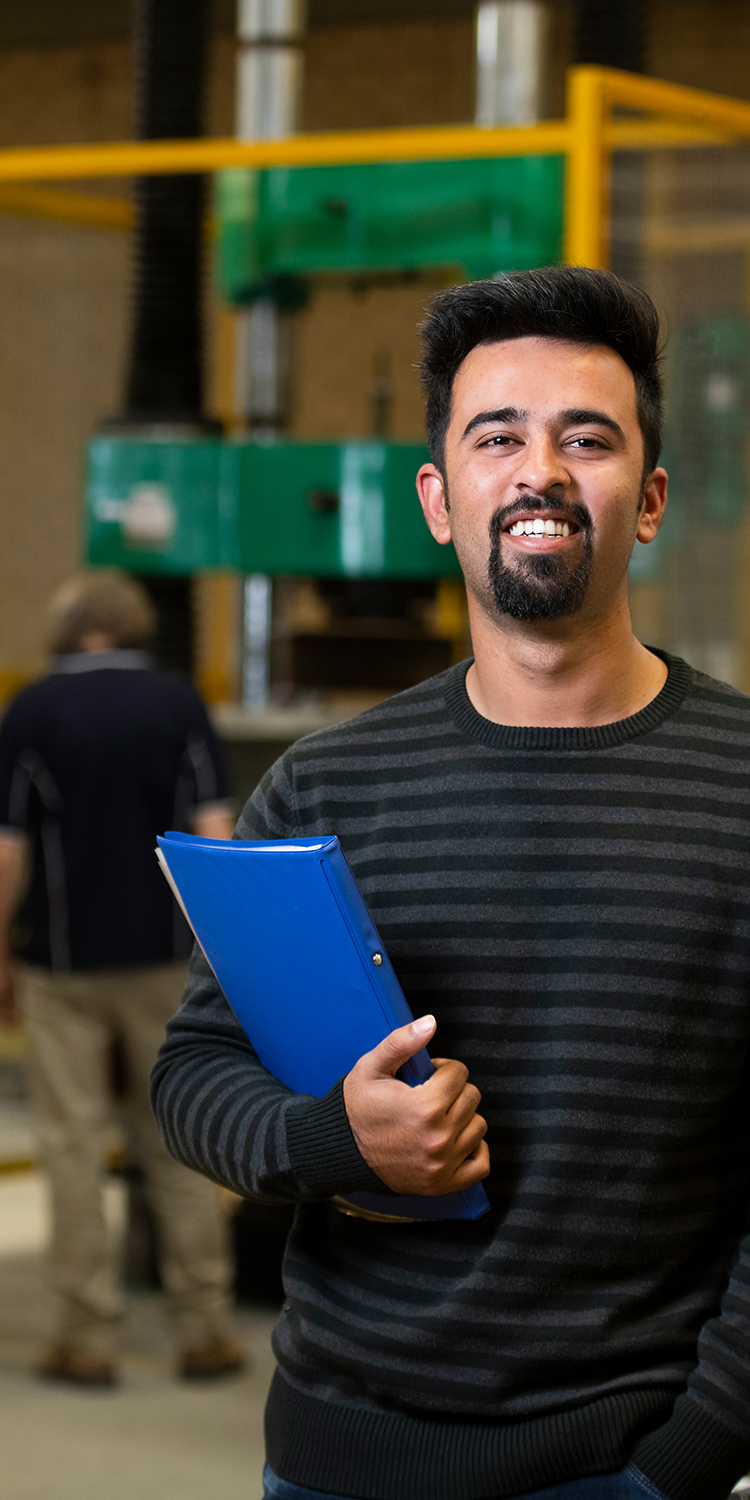What you'll learn
Our Bachelor of Engineering (Civil) (Honours) majoring in Structural Engineering provides you with a solid foundation in core civil and structural engineering knowledge, skills and principles with a focus on applying these in a construction context.
In your first year, you’ll develop a strong, general foundation in engineering before moving into civil engineering focused courses in second year.
From third year, you’ll study structural-focused courses in areas such as structural mechanics, reinforced concrete design, structural steel design, timber and masonry design.
You can also explore your specific areas of interest through elective courses like:
- Structural dynamics
- Steel concrete composite design
- Adaptive reuse of structures
- Numerical modelling of solids and structures.
In your final year, you’ll undertake a major honours research project. With industry representatives or academic researchers acting as your clients, you’ll work through the real-life stages of a project – from initial concept through to the production of technical design drawings.
As part of your studies, you’ll also complete up to 12 weeks of professional work placements. These placements provide an opportunity for you to apply the skills and knowledge you've acquired to real-world challenges.
Assessments for this degree include reports, case studies, presentations, essays and assignments, online quizzes, examinations, industry-relevant research projects, lab/practical team-based projects, e-portfolios and reflective practice.
You’ll be able to complete majority of first year common courses and second year courses at either our Adelaide City or Mawson Lakes Campus with some potential cross-campus study required. Throughout your degree, you’ll gain access to cutting-edge facilities across both campus locations to enhance your overall learning experience.
Majors
Did you know that you can also choose a Bachelor of Engineering (Civil) (Honours) with a major in one of the following:








